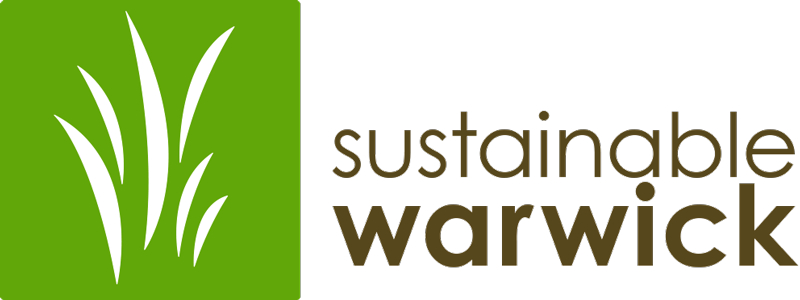Bring Your Own Bag Warwick
Bring Your Own Bag Warwick
MISSION: To reduce the use of throw-away plastics.
Beginnings of the BYOBag Committee
SW has been advocating for the reduction of plastic shopping bags for quite a while, but in 2014 SW began its campaign against single use plastics with the BYOBag committee. Plastics and especially single use plastics drive climate change, are killing wildlife and are infiltrating our food system. Plastic takeout bags are probably the most unnecessary of all single use plastics and they make up a quarter of ocean pollution. Our campaign was directed to the town board to pass an ordnance to put a five cent fee on all single-use take out bags, plastic or paper. 1550 people from the town signed a petition to this effect. There were many events such as BYOBag week, a children's art contest, free reusable bag give-aways, and three public hearings where the majority of speakers were very much in favor of the bag fee.
Although the town never did vote on this ordinance, we received a lot of publicity. We believe that our town's efforts, along with many other towns in this state were one of the main influences that caused the governor to enact the single use plastic bag ban which will go into effect on March 1, 2020.
NY State's Bag Ban Information
This ban is a good step in the right direction to keep the 23 billion plastic bags that currently go into the environment from NY State every year, out of the waste stream. However it is still a work in progress because: 1) the law allows for paper shopping bags to be given out without discretion, and 2) many single use plastic bags, containers and wrappers are still exempt.
Paper bags have very serious environmental impacts too.
It is true that paper bags do biodegrade, and rather quickly, whereas plastic bags never truly biodegrade and will remain in the environment, even as smaller particles for hundreds to thousands of years. Paper also is much more recyclable while plastics can only be "downcycled" once and will still remain in the environment forever. Apart from this there are many drawbacks to paper shopping bags:
The environmental effects of paper making include deforestation, the use of a tremendous amount of energy and toxic chemicals, water, as well as creating air and water pollution and waste problems.
Recycled paper uses less resources than fresh pulp from trees, although it still does use chemicals and water, and paper can only be recycled a maximum of 7 times.
While not an environmental drawback, we have to realize that paper bags cost much more than thin plastic film bags. That cost will be hidden from the consumer in the price of goods sold. Plastic shopping bags were never free, but they cost about ¼ of the price of paper, so we can expect goods to cost noticeably more if paper bags are widely taken.
What can I do?
The average person can do a lot to take over where government has left off.
Use as little plastic as possible. Plastic produce bags while exempt from the ban are extremely dangerous to wildlife too. These bags can be popped back into your reusable bags and reused many times. Many things that come in a lot of plastic packaging can also be found in less. Detergent for example can be bought as a powder in a box, lemonade can be made from fresh lemons and sugar. It's better and cheaper and has no plastic packaging at all. Ice tea can be made from a few tea bags.
Every time we bring our own reusable shopping bags to the market we are saving on paper. Reusable bags have an environmental impact too, but if we use them for as long as we can the environment comes out way ahead. The best choices are canvas or cotton bags, especially from recycled fibers. These can last for decades and can be washed as often as necessary. But even the $1 recycled plastic variety can last a couple of years, and can be wiped down or rinsed. Use these bags wherever you shop, not just the supermarket.
Reuse paper bags as often as possible. They can be folded up and brought back to the supermarket for more groceries, they can be made into book covers or package wrappings. Put a folded piece of newspaper in the bottom and use them to line garbage cans, or for kitty litter. What other uses can you think of? Please let us know.
Stores that choose to charge a nickel for paper bags do us a favor. This limits the amount taken and in the end reduces the price for goods. This is a fairer system than having everyone pay for the bags that only some people take. Let's show these stores our gratitude by shopping there and thanking them for their policy.
Finally we can give our elected officials at the county and state level some feedback. Tell them we want them to put a statewide or at least countywide fee on paper bags. If this is done that money will in part be funneled into environmental funds.
Get our information-packed brochure here! Download


